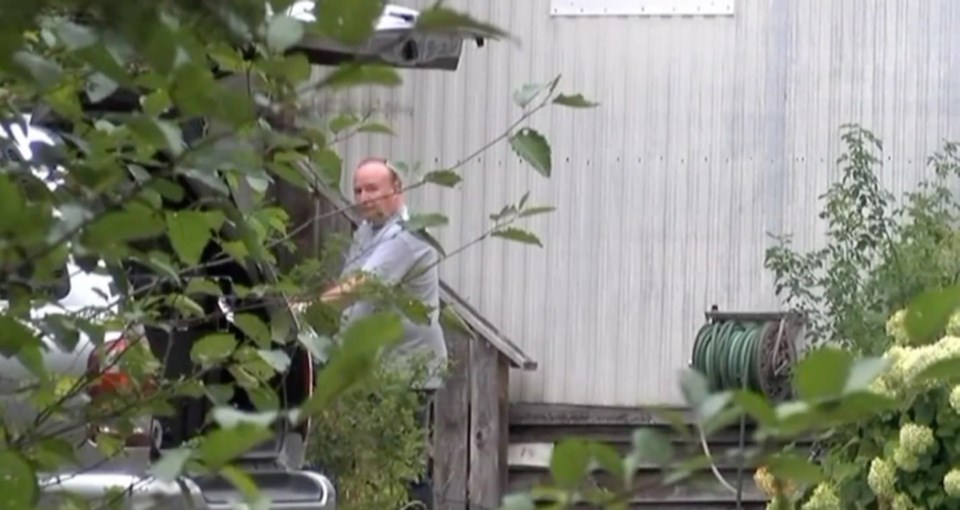There is enough evidence surrounding a nearly three-decade-old killing to extradite a Shawnigan Lake man to the U.S., a B.C. Supreme Court justice ruled Tuesday.
Anthony (Anton) Michael Kubica is charged with murder in the death of a wealthy widow killed 28 years ago in California.
The body of 78-year-old Marie Darling was discovered in the Coachella Valley desert on June 28, 1990, just over three weeks after she was last seen alive by a neighbour. Her feet were bound with duct tape and an autopsy revealed she died of blunt-force trauma to the head.
Stacey Repas, counsel for the federal attorney general, argued that there is enough circumstantial evidence to extradite Kubica to the U.S. to face trial.
In her decision on Tuesday, Justice Jennifer Duncan agreed, but stopped short of signing the extradition order. That’s because Kubica’s lawyer, Robert Mulligan, will argue that too much time has passed since the crime to ensure a fair outcome.
Mulligan said because of the nearly three decades that have passed, information that’s important to Kubica’s defence might not be available.
“There can be prejudice when there’s a long time between a case and a trial,” Mulligan said after the hearing. “The question is going to be, is it reasonable or unreasonable?”
Mulligan will present his case around the delay issue on Friday.
The final decision will be made by Justice Minister Jody Wilson-Raybould.
The extradition hearings, which began in January, are covered by a publication ban that prevents the reporting of evidence heard in court.
According to court documents made public in October, the Riverside County district attorney’s office alleges that Kubica killed Darling for financial gain.
Kubica and his wife, Connie Jo Kubica, lived in Palm Springs at the time. Prosecutors have reason to believe that Connie Jo Kubica was Darling’s financial adviser and had knowledge of her personal wealth.
Prosecutors allege Kubica emptied Darling’s bank account and used the money to pay down the mortgage on his Palm Springs home, which was facing foreclosure.
According to bank records, cash deposits made after Darling’s death allowed Kubica to cover all outstanding mortgage payments.
A year after the killing, a lawyer acting for the Darling family discovered that $184,135 US had been transferred from Darling’s Swiss bank account to the eastern Caribbean British territory of Anguilla. The National Bank of Anguilla account that received the money was opened on May 24, 1990, by Kubica, according to California court documents.
Financial records show Kubica went to the Anguilla bank and withdrew $170,000 in two separate transactions.
He asked the bank to transfer the remaining $130,000 to a Royal Bank of Canada account in his name.
Three years after Darling’s slaying, Riverside sheriff’s investigators searched the Kubicas’ home in Scottsdale, Arizona. They seized receipts, including one for the purchase of duct tape in Palm Springs on June 1, 1990. They found documents for travel to Anguilla and banking documents in Kubica’s name relating to the Anguilla account.
The extradition hearing continues Friday.



